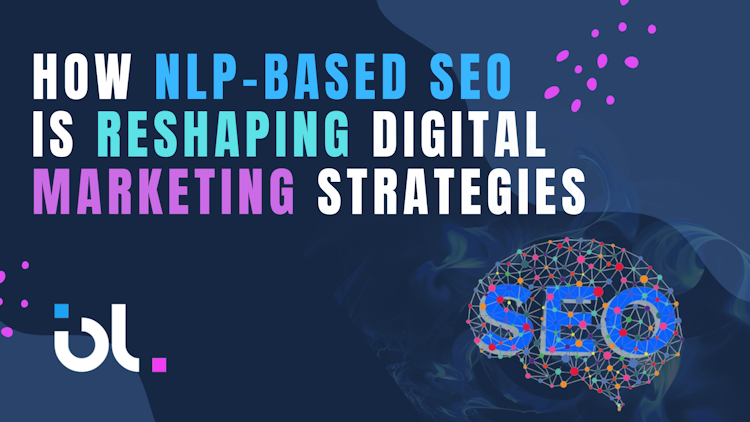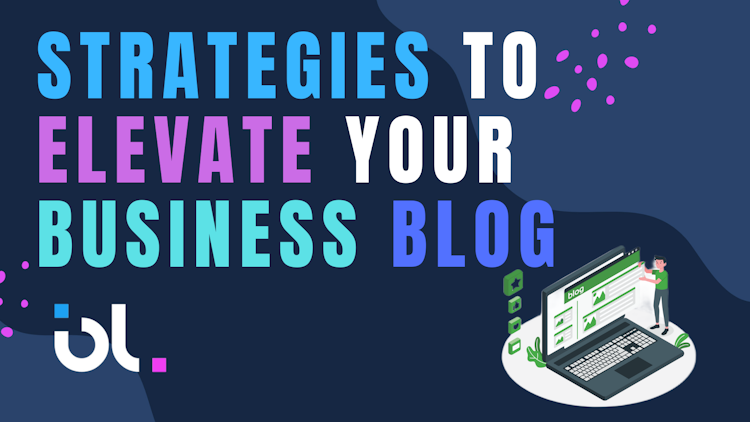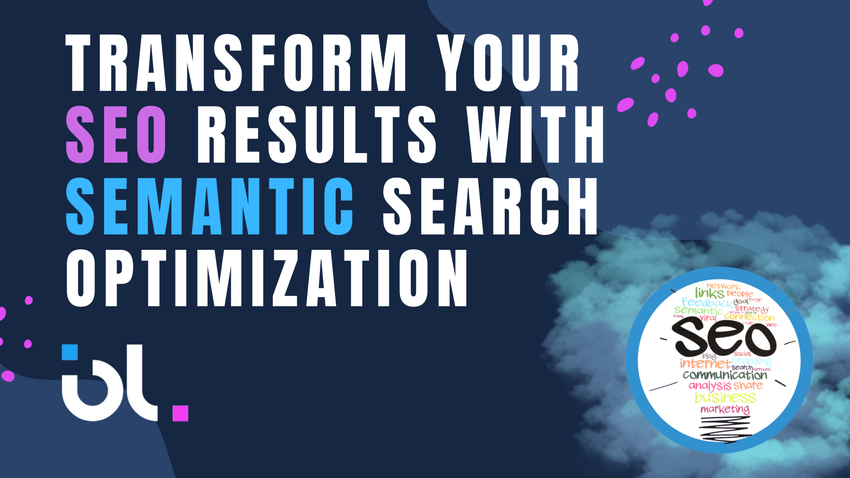What is Semantic SEO?
The practice of improving your website and its content in order to make it more readily understood by search engines is referred to as semantic search engine optimization (Semantic SEO). Meaning and context are more important than individual terms, so don’t ignore them.
Natural language processing (NLP) and machine learning algorithms are used in semantic SEO to comprehend the intent behind the searches that people enter into search engines. Search engines may utilize this information to give more relevant search results, increasing the likelihood that users will discover what they are searching for.
In essence, semantic SEO is about creating content that is both valuable to your audience and understandable to search engines. Doing so will raise your site’s exposure, bring in more visitors, and boost your conversion rate.
Why is Semantic SEO Important?
The significance of semantic search engine optimization may be attributed to the fact that it helps writers develop content that is more relevant to their target audience. By understanding the intent behind their queries, you can provide them with the information they are looking for, which means that they are more likely to stay on your website and engage with your content.
In addition, boosting your search engine rankings using semantic SEO will assist you in attracting a greater volume of visitors to your website. When search engines understand the context of your content, they are more likely to show it to users who are searching for information that is related to your niche or industry.
One last reason why semantic search engine optimization is essential is that it might help you future-proof your website. Content that is relevant to consumers’ needs and provides them with value will continue to be given more priority by search engines as their sophistication increases.
You can make sure that your website is always one step ahead of the competition and continues to bring in traffic and conversions by improving the content for semantic SEO.
What are the Advantages of Semantic SEO?
The advantages of implementing semantic SEO techniques are numerous and can greatly benefit your website and online presence. Let’s examine the benefits of semantic SEO in further detail.
Improved Relevance: With semantic search engine optimization, you are able to provide content that is more relevant to your readership. By targeting topics instead of just keywords, you can create content that covers all aspects of a particular subject, providing valuable information to your audience. This will not only keep your visitors engaged but also encourage them to share your content, which can lead to higher conversions.
Increased Search Engine Results: Higher search engine rankings are possible with semantic search engine optimization. When search engines comprehend the context and purpose of your material, they may give more relevant search results to consumers. This implies that by optimizing your content for semantic SEO, you may boost the visibility of your website and attract more visitors.
Enhanced User Experience: In semantic search engine optimization, the focus is on the end user. By creating high-quality content that is valuable to your audience, you can ensure that your visitors stay on your site longer, engage with your content, and return for more. This may assist in establishing your brand as an expert in your field and boost the amount of consumer loyalty you enjoy.
Increased Brand Awareness: When people see your website at the top of the pages of the results, it may help boost their awareness of your business. By consistently creating high-quality content that is optimized for semantic SEO, you can build trust with your audience and establish yourself as an expert in your industry. This may result in an increase in the number of visitors, the number of conversions, and eventually the money generated.
Higher Conversion Rates: Semantic SEO can help increase your conversion rates by providing your visitors with the information they need to make informed decisions. By targeting topics instead of just keywords, you can create content that addresses the needs and concerns of your audience, which can encourage them to take action and convert.
How Semantic SEO Improves The Search Experience?
Semantic SEO improves the search experience in several ways. These include:
- More Relevant Results: Search engines can better serve users’ needs if they can deduce their intentions from their inquiries. This improves the search experience as a whole by improving the probability that users will discover their desired results.
- Enhanced User Engagement: It is more probable that people will interact with information if they discover that it is related to the questions that they have asked. This may result in increased conversion rates, increased average time spent on the site, and decreased bounce rates.
- Improved Accessibility: The use of semantic search engine optimization may make your content more approachable to a larger audience. By using natural language and providing context, you can make it easier for users with different levels of knowledge and experience to understand your content.
- Better Search Intent Understanding: Understanding the goals of users’ searches is a primary emphasis of semantic search engine optimization. By doing this, search engines can provide more targeted results that are specific to the user’s needs.
- Increased Trust: When people discover content on your website that is relevant to their needs and helpful to them, they are more inclined to trust your brand. This can lead to more repeat visits, higher engagement, and ultimately more revenue.
Semantic SEO Strategies for Higher Rankings
Semantic SEO is all about providing valuable and informative content to your audience while also ensuring that search engines can easily understand the meaning and context of your content. There are a few different approaches that you can take in order to optimize the content of your website for semantic search engine optimization, which may help enhance your website’s ranks in search engines and bring in more visitors.
Focus on Topics, Not Just Keywords
One of the most important strategies for optimizing your content for semantic SEO is to focus on topics rather than just specific keywords. This means creating content that covers a specific topic in depth, provides value to your audience, and covers all aspects of a particular topic. By focusing on topics instead of specific keywords, you can provide comprehensive and useful content that answers the user’s search question.
To do this, start by researching the topics that your audience is interested in and creating a list of related keywords. Use these keywords to guide your content creation process and ensure that you are covering all aspects of the topic. You can also find relevant subjects and phrases that you may have missed by using tools like Ahrefs and SEMRush.
Use Natural Language
Using natural language in your content is an additional significant method for optimizing it for semantic search engine optimization. Avoid keyword stuffing and instead focus on providing value to your audience by using language that is easy to understand. This means that you should steer clear of jargon and technical phrases that your audience may not be familiar with.
To use natural language effectively, think about the questions that your audience may have about a particular topic and try to answer them in a clear and concise way. Use examples and anecdotal stories to explain your views, and use short words and paragraphs to make your text easier to read.
Provide Context
Providing context for your content is essential for optimizing it for semantic SEO. This means using descriptive headings, subheadings, and bullet points to make it clear to both your audience and search engines what your content is about. You can make it simpler for search engines to comprehend the general meaning of your material and give more relevant search results by providing context for them.
To provide context effectively, start by creating a clear and informative title for your content. Make use of subheadings to partition off your text into parts and bullet points to draw attention to the most important points and ideas. Make sure that your content flows logically and that each section builds on the previous one.
Use Schema Markup
A kind of structured data known as schema markup offers search engines more context for the information they index. You may make it simpler for search engines to grasp the meaning of the material you’ve created and give search results that are more relevant to your query by using schema markup. This is of utmost importance for local companies, as it may enhance their exposure in search results that are specific to their area.
To begin using schema markup, you must first determine the most vital aspects of your company’s information, such as its location, phone number, and operating hours. Put this information front and center on your website by highlighting it with the correct schema markup, and check to see that it is presented in the same way throughout all of your online listings.
Optimize for Voice Search
The rise of voice search has resulted in a shift in how keywords should be targeted. If you want to rank well in voice searches, you should provide material that helps people find solutions to their unique inquiries. This necessitates the use of everyday language and the provision of succinct explanations in response to inquiries.
To optimize for voice search, start by identifying the most common questions that your audience may have about your business or industry. Create content that answers these questions in a clear and concise way, using natural language and avoiding technical terms or jargon. You should optimize your website for mobile devices, make it load quickly, and utilize structured data to provide search engines with more context.
Final Thoughts On Semantic SEO
The use of semantic search engine optimization is an essential component of any SEO plan. Understanding the purpose behind people’ searches and generating content that gives value and context may help you improve your search engine results, attract more visitors, and eventually raise your conversions.
Focus on developing high-quality content that adds value to your audience to get the most out of your semantic SEO approach.
To help search engines grasp the meaning of your material, use natural language, add context, and employ structured data. Stay up-to-date with the latest trends and best practices, and don’t be afraid to experiment and try new strategies to see what works best for your website.
Keep in mind that SEO is a process that is always continuous, and that in order to remain ahead of the curve, it demands continual work and improvement. You may raise the visibility of your website in search engines and draw more visitors to your site by giving semantic search engine optimization a higher priority in your overall SEO strategy.
FAQ
What distinguishes semantic SEO from conventional SEO?
Traditional SEO focuses on keyword optimization, while semantic SEO focuses on understanding the meaning and context of content.
How does user experience benefit from semantic SEO?
Semantic SEO improves the user experience by providing more relevant search results and content that is valuable and easy to understand.
Can semantic SEO help me improve my search engine rankings?
If you improve the content of your website to make it more optimized for semantic search engines, you may see a rise in the number of people who visit your site and improve in serps.
What are some strategies for optimizing content for semantic SEO?
Strategies for optimizing content for semantic SEO include focusing on topics, using natural language, providing context, using structured data, and optimizing for voice search.
Is semantic SEO a one-time process?
No, semantic SEO is an ongoing process that requires constant monitoring and optimization to stay ahead of the curve.
When using semantic SEO, how long until you start seeing results?
Semantic SEO outcomes may not be noticeable for many months. Your website’s search engine rankings and visitor count will gradually rise if you regularly optimize your content and track your results.
Do I need help from an expert, or can I do semantic SEO on my own?
You can do semantic SEO on your own if you have the time and resources to learn about the best practices and stay up-to-date with the latest trends. But, if you want to guarantee that your website is thoroughly optimized for semantic SEO, it may be worthwhile to hire an expert.
Is semantic SEO the only factor that affects search engine rankings?
No, the rankings that a website receives in a search engine are determined by a broad range of elements, such as the quality of its content, the structure of its website, and the backlinks it has. Semantic SEO is just one piece of the puzzle, but it can help to improve your overall search engine visibility.




